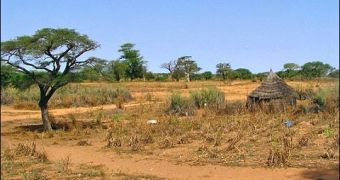Just two days ago, during the Rio+20 Earth Summit, Africa, Brazil and France made public their plans to fight back desertification in the Sahel region and save the fertile lands in the area.
Apparently, they decided that this course of action is necessary back in October 2011, but it is only now that concrete ideas are beginning to take shape and be implemented.
As representatives of the aforementioned countries explain, millions of people in Africa are presently affected by desertification.
SciDev.Net informs us that, in order to jump-start this project, roughly $1,3 million (about €1 million) will be made available.
This money will be invested in developing programs meant to prevent Sahel's semiarid grasslands, savannas and steppes from turning into deserts.
Apparently, as a result of climate change – global warming, more precisely – this is quite likely to happen in the not-so-distant future, unless something is done about it.
Some agricultural lands in this part of the world have already been turned into deserts by extreme weather conditions.
The same source reports that Michael Laurent, one of the people involved in this project, explained that “The situation in the Sahel area is continuing to deteriorate, with desertification spreading southwards and causing many people to migrate.”
What is interesting is that this campaign against deforestation in the Sahel region will require that scientists and representatives of civil society groups work together, the end-goal being to implement sustainable development policies and improve on the quality of life of those living there.
To make sure that the campaign is as successful as possible, the targeted areas will be under continuous monitoring, and data will be collected both on the ground, and with the help of satellites.
The “Declaration of Niamey,” officially adopted at the said international conference, binds together the following national organizations: Brazil's National Council for Scientific and Technological Development, France's Institute of Research for Development, and the Pan-African Agency of the Great Green Wall.

 14 DAY TRIAL //
14 DAY TRIAL //